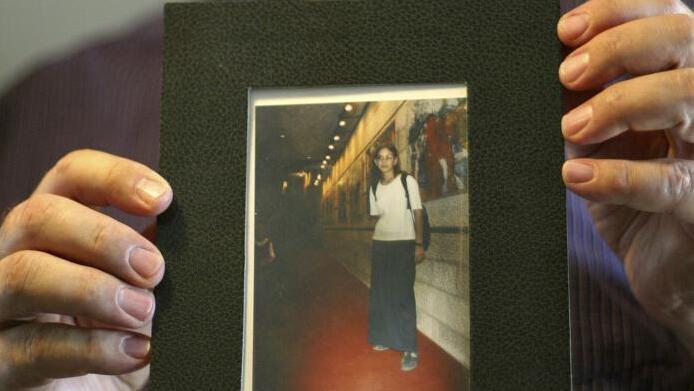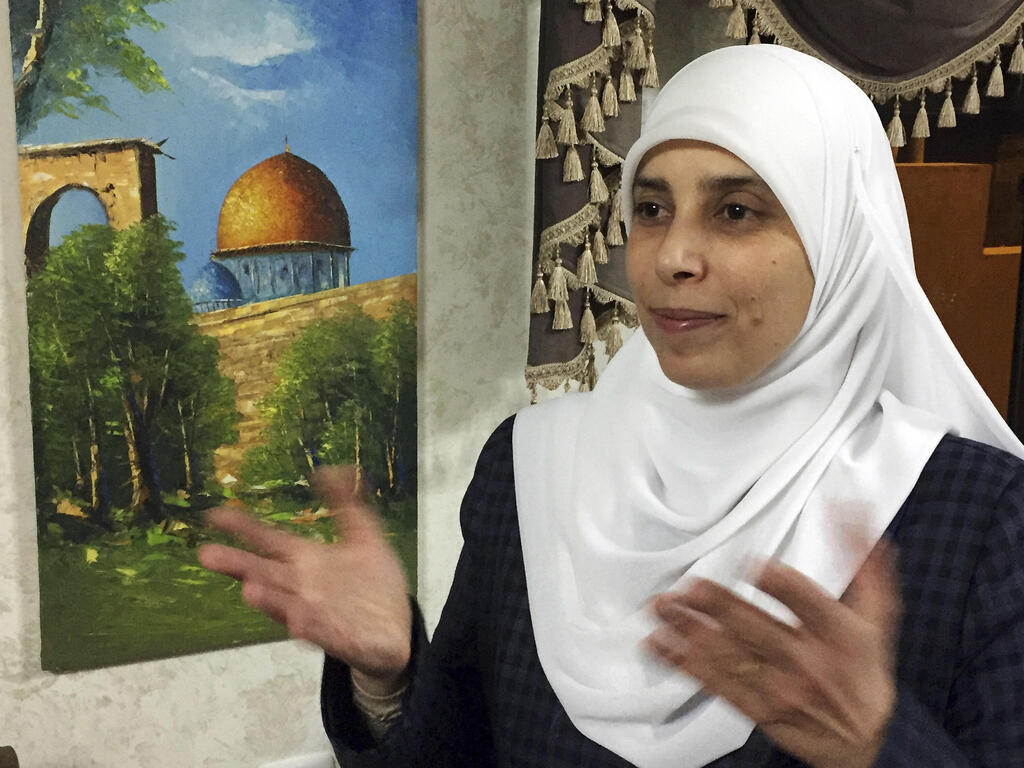Getting your Trinity Audio player ready...
The U.S. said Monday it is still seeking the extradition of a Palestinian woman in Jordan convicted of aiding a suicide bomber in Jerusalem in 2001.
But it declined to comment on a request from the family of one of the victims for a meeting with President Joe Biden.
2 View gallery


Arnold Roth holds a photo of his 15-year-old daughter Malki, who was killed in an August 2001 Palestinian suicide bombing at a Jerusalem pizzeria
(Photo: AP)
The family of an Israeli-American girl killed in the attack have asked for a meeting with Biden when he visits Israel later this week. They want him to press Jordan, a close American ally, to send Ahlam Tamimi to the U.S. for trial.
“We ask that you address this as only the leader of the United States can,” Frimet and Arnold Roth, the parents of Malki Roth, who was 15 when she was killed in the attack, wrote in a letter.
The Roths have been waging a campaign for the extradition of Tamimi since she was released by Israel in a 2011 prisoner swap with the Hamas militant group and sent to her native Jordan, where she lives freely and has been a familiar face in the media.
“The U.S. government continues to seek her extradition and the Government of Jordan’s assistance in bringing her to justice for her role in the heinous attack,” the National Security Council said Monday.
On August 9, 2001, a Palestinian bomber walked into a Jerusalem pizzeria and blew himself up, killing 15 people. Two American citizens, including Malki Roth, were among the dead.
Tamimi, who chose the target and guided the bomber there, was arrested weeks later and sentenced by Israel to 16 life sentences. Since her release, she has boasted that she was pleased with the high death toll. In a 2017 interview, she said the Palestinians have a right to resist Israel by any means, including deadly attacks.
The United States has charged Tamimi with conspiring to use a weapon of mass destruction against Americans. Her name was added to the FBI’s list of Most Wanted Terrorists.
The U.S. and Jordan signed an extradition treaty in 1995. But in 2017, Jordan’s high court blocked her extradition, reportedly claiming the treaty was never ratified.
Jordan is one of the United States’ closest partners in the Arab world, seen as a force of moderation and stability in the volatile Middle East.


